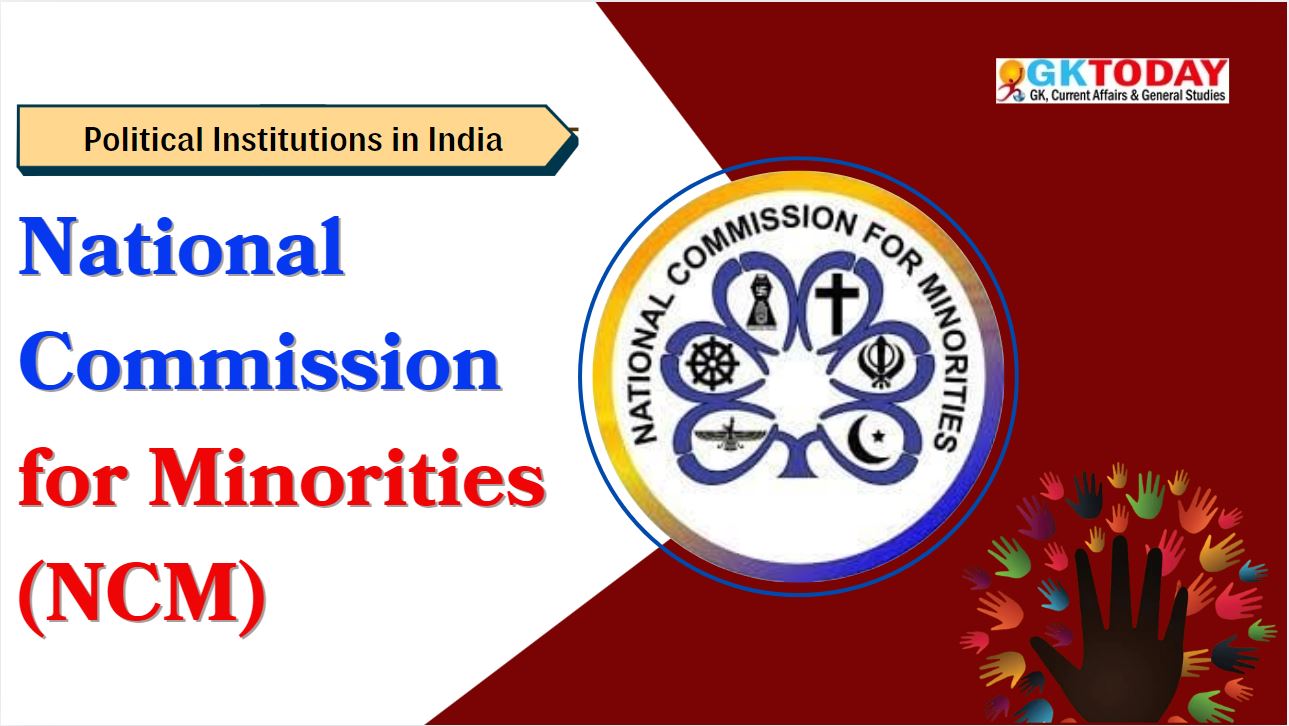National Commission for Minorities (NCM) [UGC NTA NET Political Science Notes]
The National Commission for Minorities (NCM) is a statutory body in India established to protect the rights and interests of minority communities. Formed under the National Commission for Minorities Act, 1992, it plays a vital role in ensuring the welfare of minorities in the country.
Establishment
The NCM was established in 1992.
- Year of Establishment: 1992
- Under: National Commission for Minorities Act, 1992
- Objective: To safeguard the rights of minorities and promote their welfare.
Composition
The NCM consists of a chairperson and six other members.
- Members: A chairperson and six other members.
- Appointment: Members are appointed by the Central Government.
- Eligibility: Members should be from minority communities or possess relevant experience.
Minority Communities Recognized
The NCM recognises several minority communities in India.
- Current Recognized Minorities:
- Muslims
- Christians
- Sikhs
- Buddhists
- Zoroastrians (Parsis)
- Jains
- Criteria for Recognition: Communities that are numerically smaller compared to the majority population.
Functions and Powers
The NCM has a broad mandate to protect and promote minority rights.
Functions
The NCM performs various functions aimed at safeguarding minority interests.
- Advisory Role: Advises the Central and State Governments on policies and programs for minorities.
- Monitoring: Monitors the implementation of safeguards provided to minorities under the Constitution and laws.
- Investigation: Investigates specific complaints regarding deprivation of rights and safeguards for minorities.
- Recommendations: Makes recommendations for the effective implementation of policies for minorities.
- Research and Studies: Conducts studies on issues affecting minorities.
Powers
The NCM holds specific powers to fulfil its mandate.
- Summoning: Can summon individuals and documents for inquiries.
- Report Submission: Submits annual reports to the Central Government, which are laid before Parliament.
Headquarters
The NCM is headquartered in New Delhi.
- Location: New Delhi
Significance
The NCM plays important role in India’s socio-political landscape.
- Protection of Rights: Plays a vital role in protecting the rights and interests of minority communities.
- Policy Formulation: Influences government policies and programs aimed at minority welfare.
Challenges
The NCM faces several challenges in executing its functions.
- Implementation Issues: Challenges in the effective implementation of recommendations.
- Resource Constraints: Limited resources and manpower to address all issues effectively.
Recent Developments
The NCM is involved in ongoing discussions regarding minority issues.
- Policy Changes: Discussions regarding the expansion of the definition of minority and inclusion of new communities.
- Focus Areas: Emphasis on education, employment, and socio-economic development of minorities.
Related Bodies
Several other bodies work alongside the NCM to address minority issues.
- State Minorities Commissions: Similar bodies at the state level to address local minority issues.
- National Commission for Scheduled Castes (NCSC): Focuses on scheduled caste issues.
- National Commission for Scheduled Tribes (NCST): Addresses issues related to scheduled tribes.


